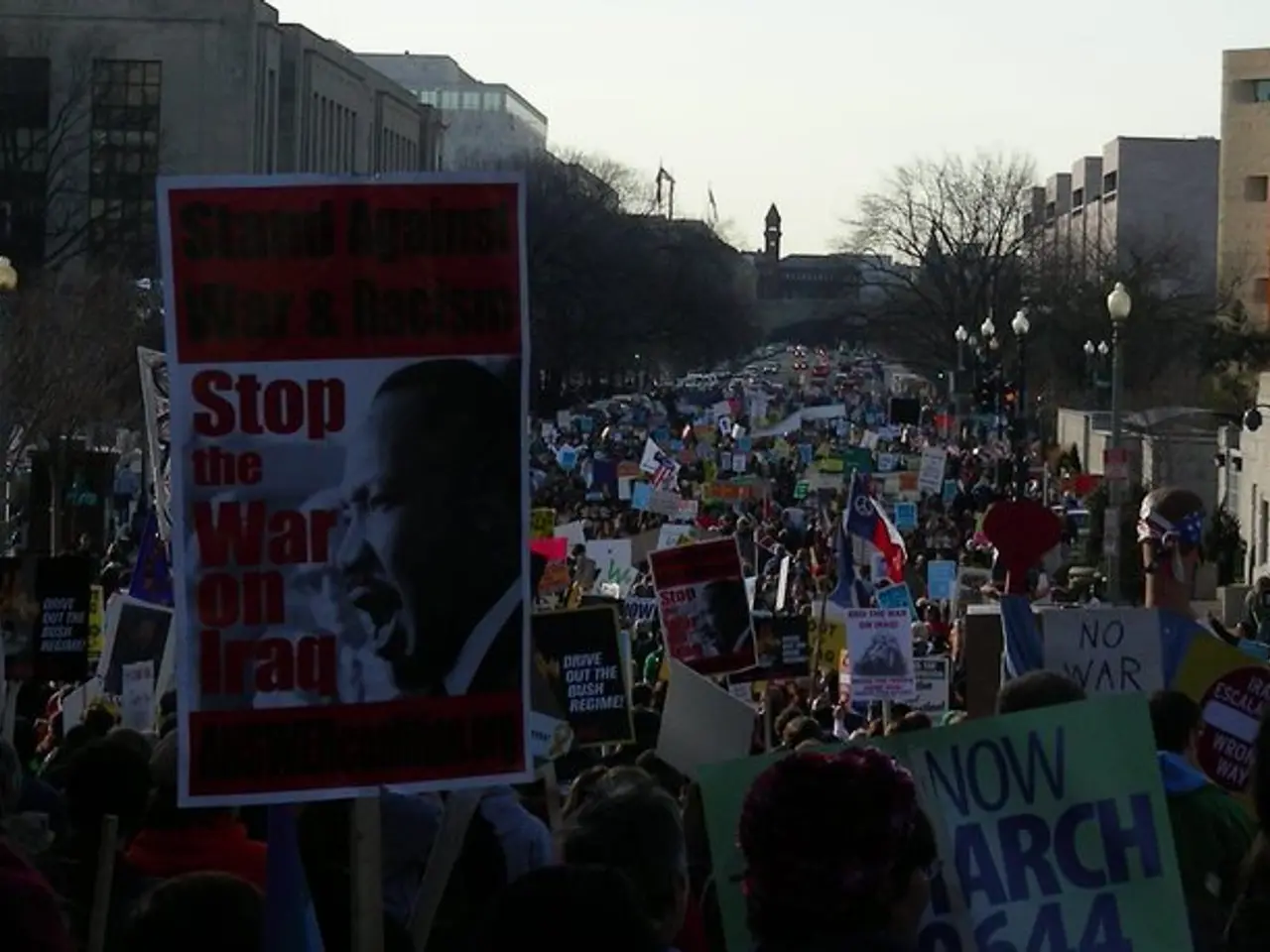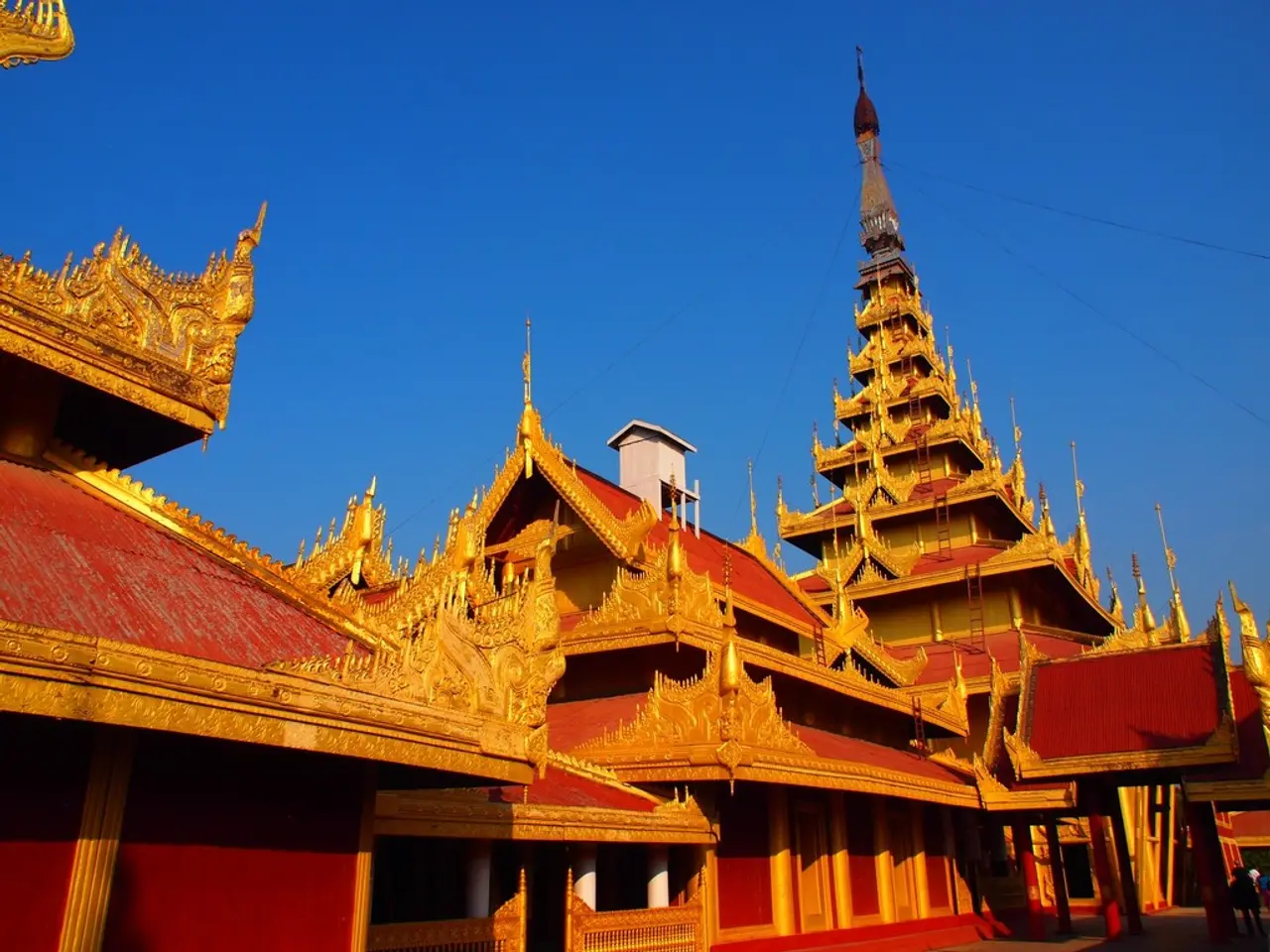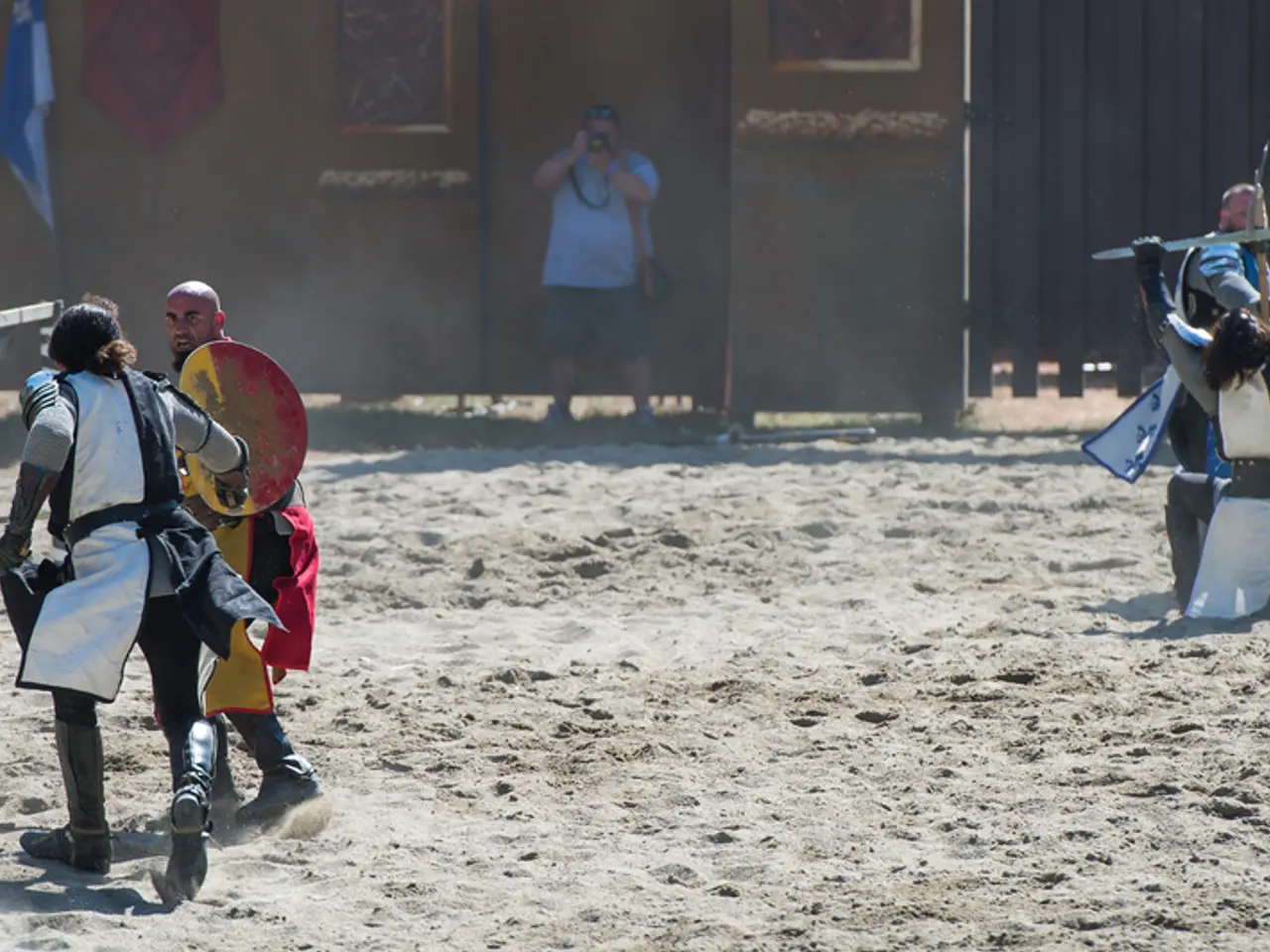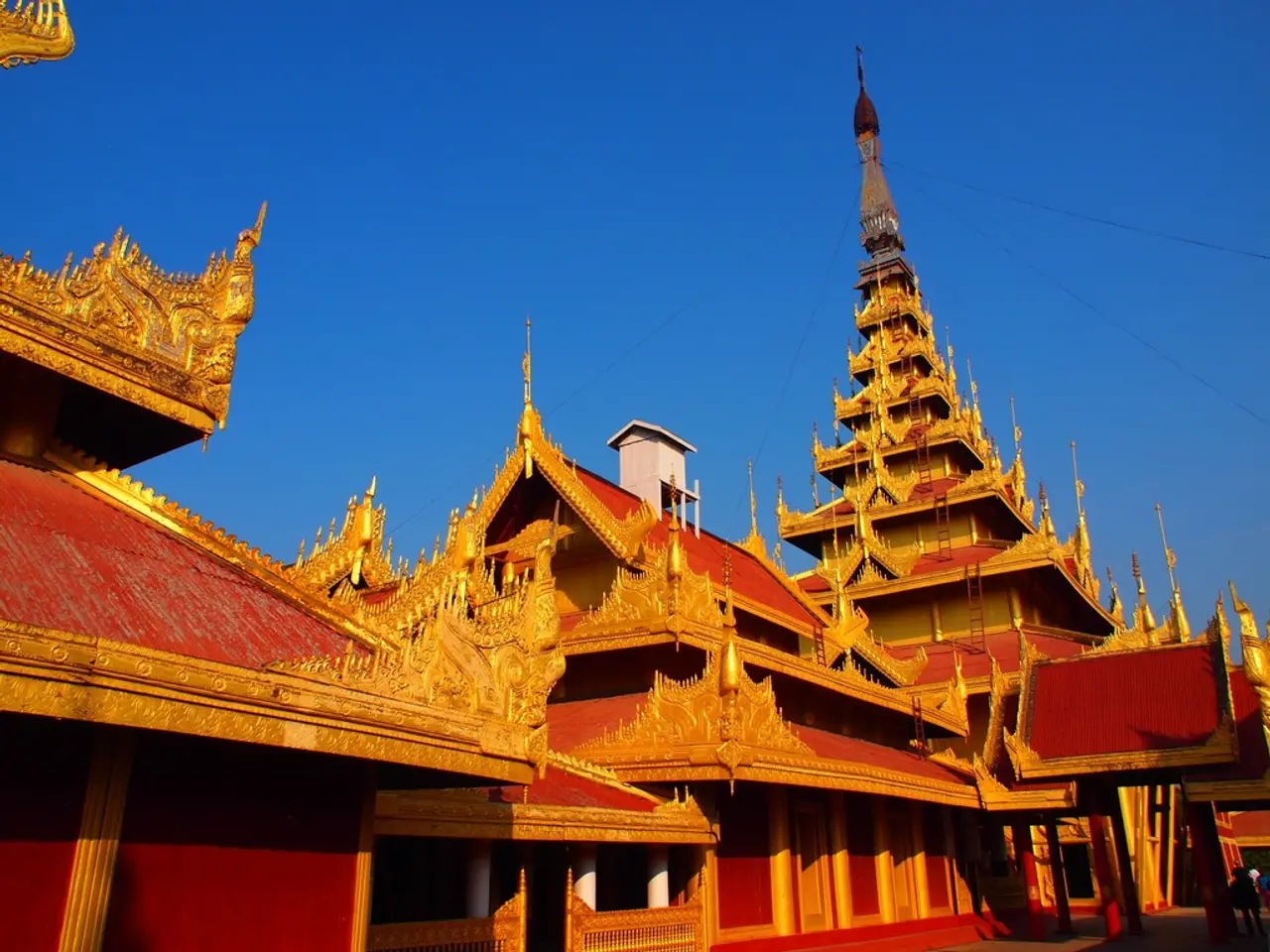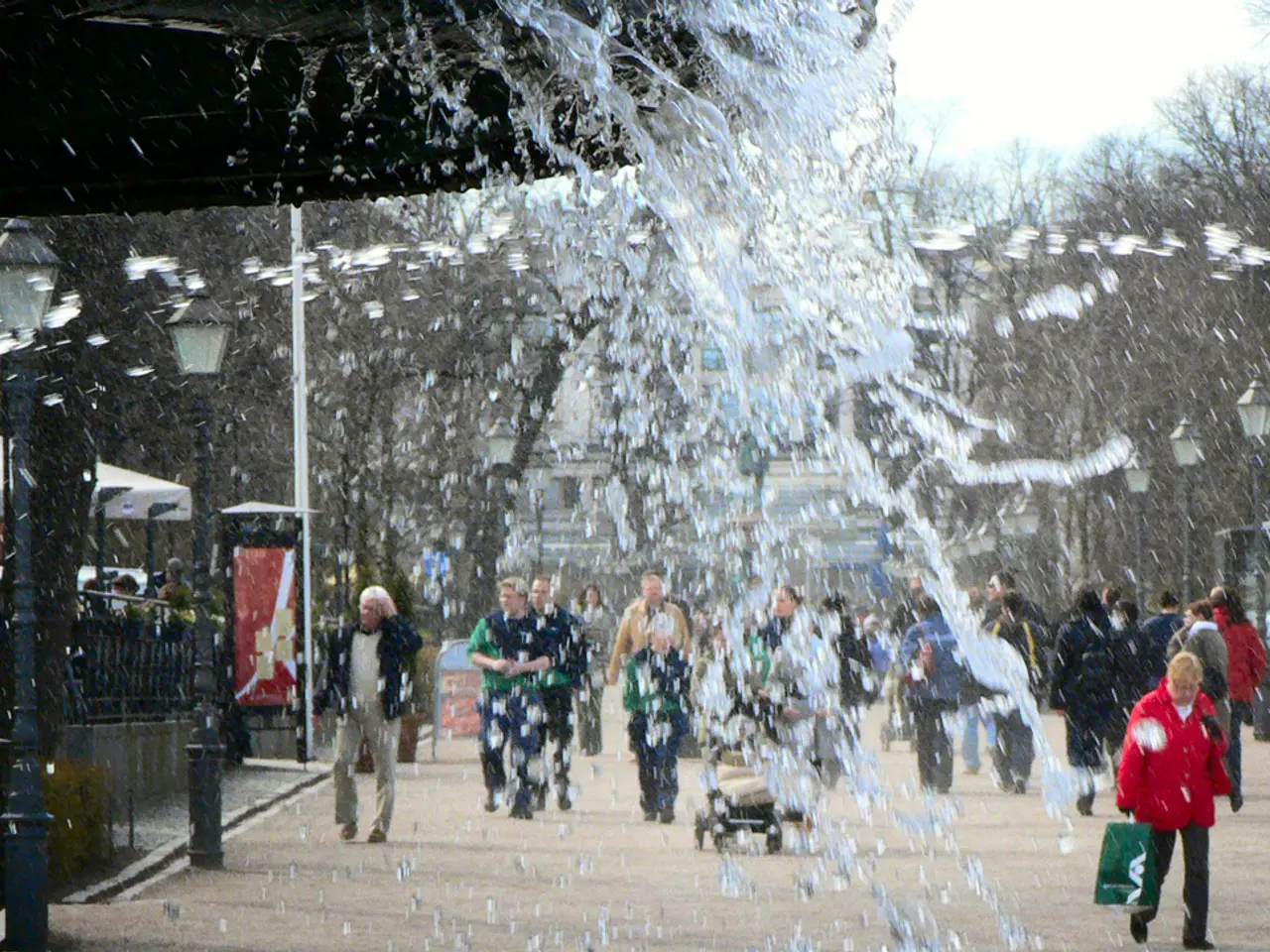Battle for Justice: Exploring the Legal Struggle to Aid Trump's Deportees in El Salvador
In a complex web of legal challenges and international implications, the situation surrounding the deportation of Venezuelan nationals to El Salvador's Center for Containment of Terrorism (CECOT) is causing concern. The Trump administration has invoked the Alien Enemies Act to deport individuals, including Venezuelan nationals, leading to questions about the legality and humanitarian implications of such actions.
CECOT, known for its harsh and inhumane conditions, has been at the centre of numerous complaints. In a recent case, Kilmar Abrego Garcia's deportation was deemed illegal by a court due to the inhumane conditions at CECOT and concerns about his safety, leading to his ordered return to the U.S.
Cristosal, a human rights NGO, has been actively involved in shedding light on this issue. Despite facing government harassment and persecution, forcing them to suspend operations in El Salvador, the organisation continues to work from neighbouring countries. Cristosal's director, Noah Bullock, has stated that in Bukele's El Salvador, speaking out or asking something not aligned with the government entails the risk of being arrested.
Lawyer Rene Valiente, the investigations coordinator for Cristosal, is leading the investigation into the fate of 252 Venezuelan migrants expelled from the United States without a court hearing. Valiente has faced numerous obstacles, with no visitation rights, no proof the men are alive, and not even an official list of their names. Despite filing 70 applications for habeas corpus, none have been resolved.
The situation has also affected ordinary citizens. Jhoanna Sanguino, for instance, saw her 24-year-old nephew's name on a leaked list of detainees, causing her concern for his welfare. Some detainees have been identified by distraught family members in Hollywood-style images of chained and shorn deportees.
The actions of the Salvadoran government, including the use of the Foreign Agents Law, have raised significant human rights concerns. These actions have been criticized for their impact on civil liberties and the treatment of civil society groups. Former Venezuelan diplomat Walter Marquez has warned that failing to address these issues could lead to international prosecution.
President Nayib Bukele's government has faced international criticism for its crackdown on civil liberties and human rights, despite claims of reducing crime. The international community may impose sanctions or increase diplomatic pressure on El Salvador due to human rights abuses and the handling of deportees.
In response to these challenges, Cristosal is considering approaching bodies like the United Nations Human Rights Council, the Inter-American Court of Human Rights, and the International Criminal Court. Salvador Rios, a Salvadoran lawyer hired by the government in Caracas to represent 30 deportees, believes that Bukele will face justice sooner or later.
As the situation continues to evolve, the international community will be watching closely to ensure the rights and safety of the migrants are protected and that El Salvador upholds its obligations under international law.
[1] https://www.reuters.com/world/americas/us-deportations-el-salvador-raise-concerns-about-human-rights-2021-01-21/ [2] https://www.aljazeera.com/news/2021/1/21/el-salvador-faces-international-scrutiny-over-deportation-of-venezuelans [3] https://www.nytimes.com/2021/01/21/world/americas/venezuelan-deportations-el-salvador.html [4] https://www.bbc.com/news/world-latin-america-55688658
- The harsh conditions at El Salvador's Center for Containment of Terrorism (CECOT), the illegal deportation of Kilmar Abrego Garcia, and the ongoing investigation into the fate of 252 Venezuelan migrants by Cristosal's investigations coordinator, Rene Valiente, raise questions about human rights, particularly the safety and welfare of migrants in the face of war-and-conflicts and political instability.
- In the midst of international scrutiny, the Trump administration's efforts to deport Venezuelan nationals under the Alien Enemies Act has attracted criticism for its implications on human rights, health, and general news, with concerns over the inhumane treatment of deportees at CECOT.
- In the context of the complex legal challenges surrounding the deportation of Venezuelan nationals to El Salvador, politics plays a significant role in shaping the human rights landscape, with the actions of El Salvador's government, including the use of the Foreign Agents Law, being criticized for their impact on civil liberties and the treatment of civil society groups, leading to potential international prosecution.
